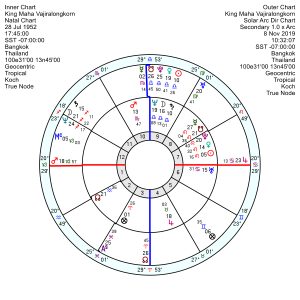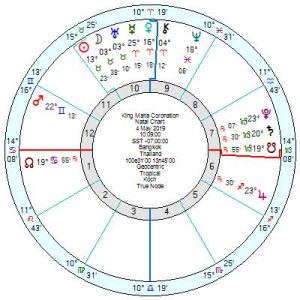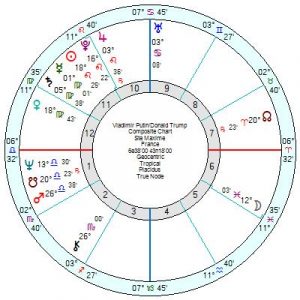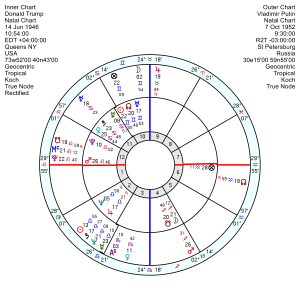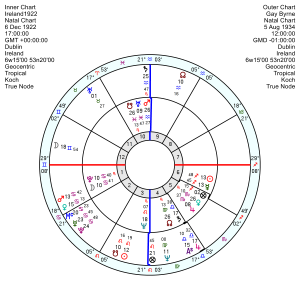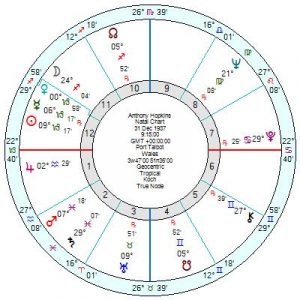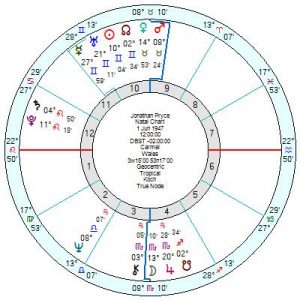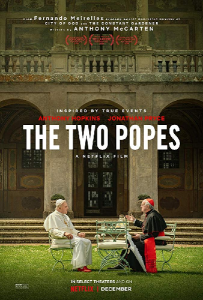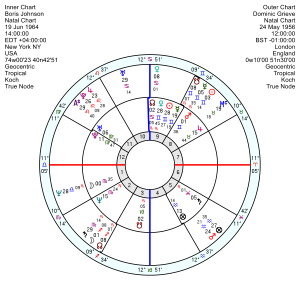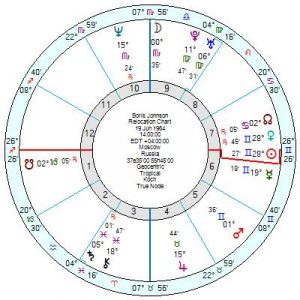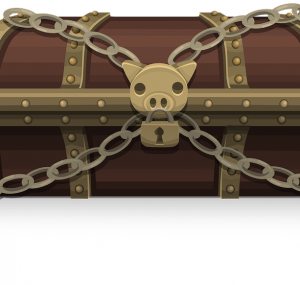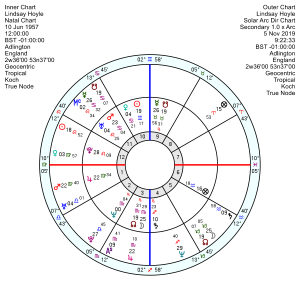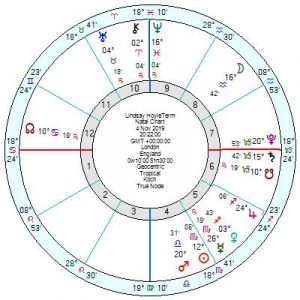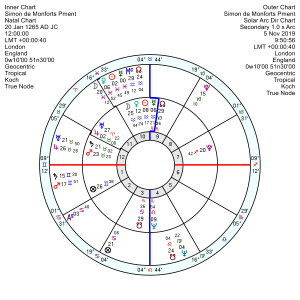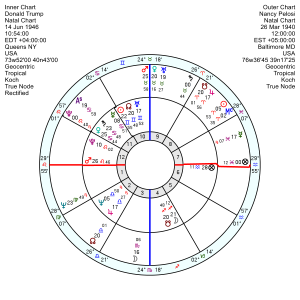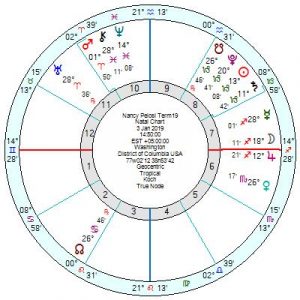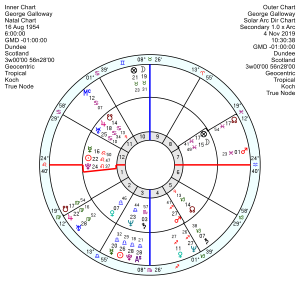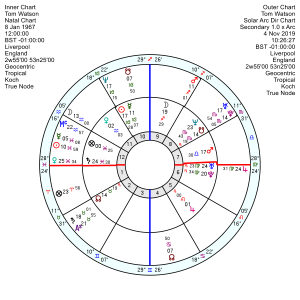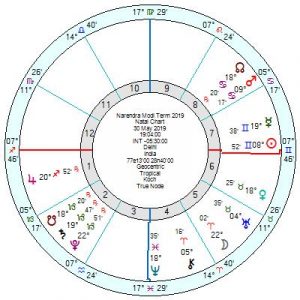Shakespeare’s Prince Hal rose to the challenge of transitioning into a stalwart King Henry. Which was the faint hope in Thailand two years back when Prince Maha Vajiralongkorn moved closer to replacing his revered, steady-hand-on-the-tiller father who had reigned for seven decades. Maha, 28 July 1952 5.45pm Bangkok, Thailand, was a playboy prince, with a rackety reputation, three failed marriages and an explosive temper who made his pet poodle an Air Chief Marshal in the Thai air force and gave him a four-day Buddhist funeral when he died.
Since being crowned on 4 May this year he has done nothing to dispel doubts about his suitability for the role – firing aide after aide as well as his much publicized consort for scheming against his fourth wife; as well as putting himself in charge of the multi-billion pound Crown Property Bureau, and assigning military troops to his Royal corps. All the hallmarks of an absolutist monarchy.
His chart is certainly grossly indulgent, acquisitive and control-freaky with Jupiter in Taurus opposition an ambitious and vengeful 10th house Mars in Scorpio squaring onto Pluto Venus in Leo; with the Sun and Mercury also in Leo. Plus a can-be-fanatical and autocratic Uranus square Neptune Moon Saturn in Libra. After his third divorce, he had his ex-wife’s parents thrown in jail for criticising him. Lese-majeste is a crime in Thailand, which pushes public discontent underground.
His Coronation chart timed at 10.09 am has the repressive, restrictive Saturn Pluto in the 7th inconjunct Mars and square Venus Mercury, so was never going to be a light-hearted affair. With an opportunistic Mars opposition Jupiter in an evasive square to Neptune.
By the end of 2021 the Saturn Pluto conjunction will have moved by Solar Arc to exact and Pluto will be squaring the Mercury at the same time, followed by Solar Arc Saturn – so the sombre mood will intensify over the next few years. There’ll be panicky failure at the top from 2021 to 2023 with tr Neptune square the Mars and Jupiter which could indicate financial problems as well.
His own chart is on a jolting, jangling, explosive few years as tr Uranus squares his Sun this year and next, and then proceeds to square his focal point Venus Pluto 2021 to 2023/4 which will turn his life upside down. Tr Pluto square his midheaven in 2023/24 can bring a ruined reputation or a fall from high position so he won’t get away with his bad behaviour unscathed.

